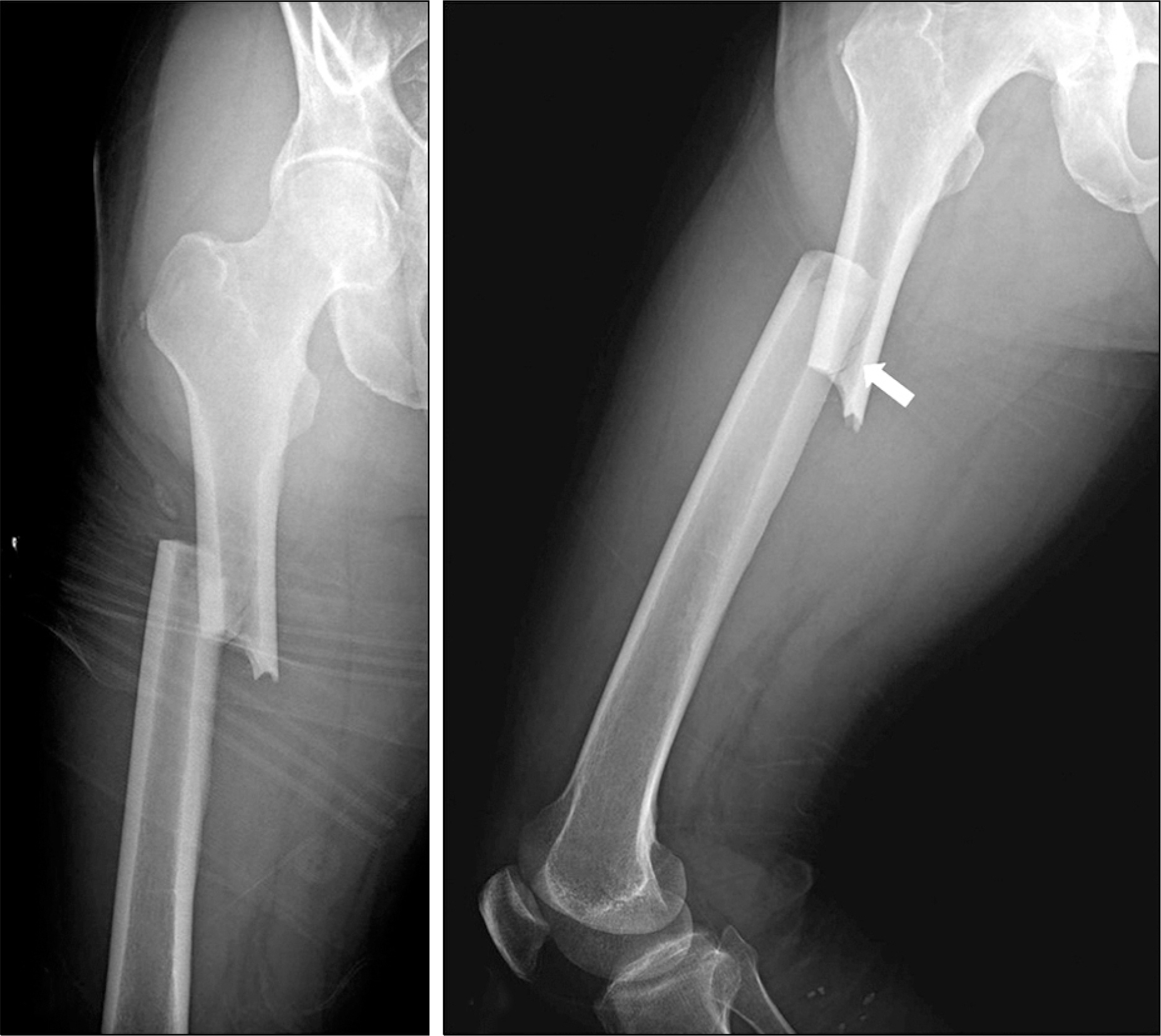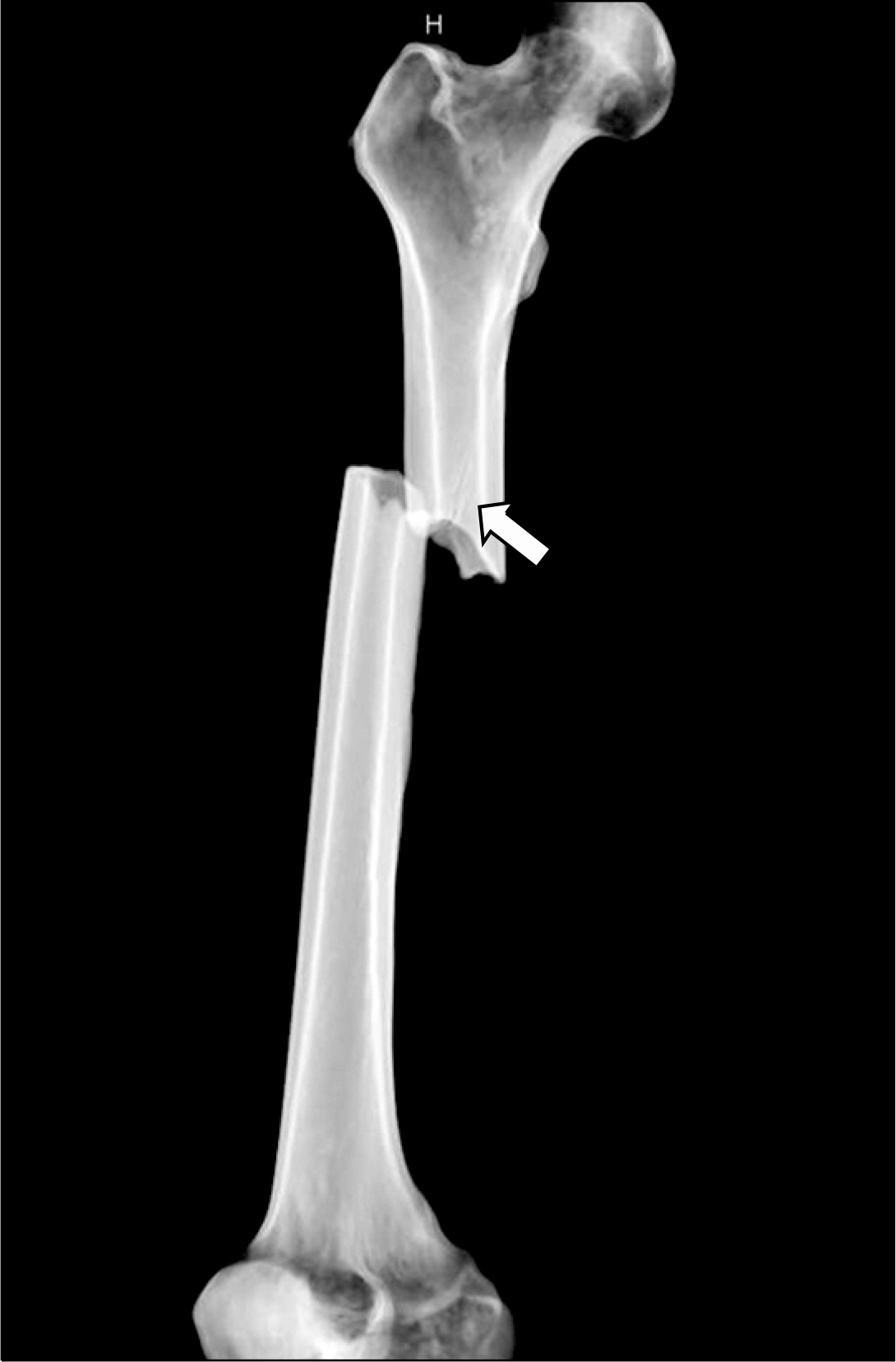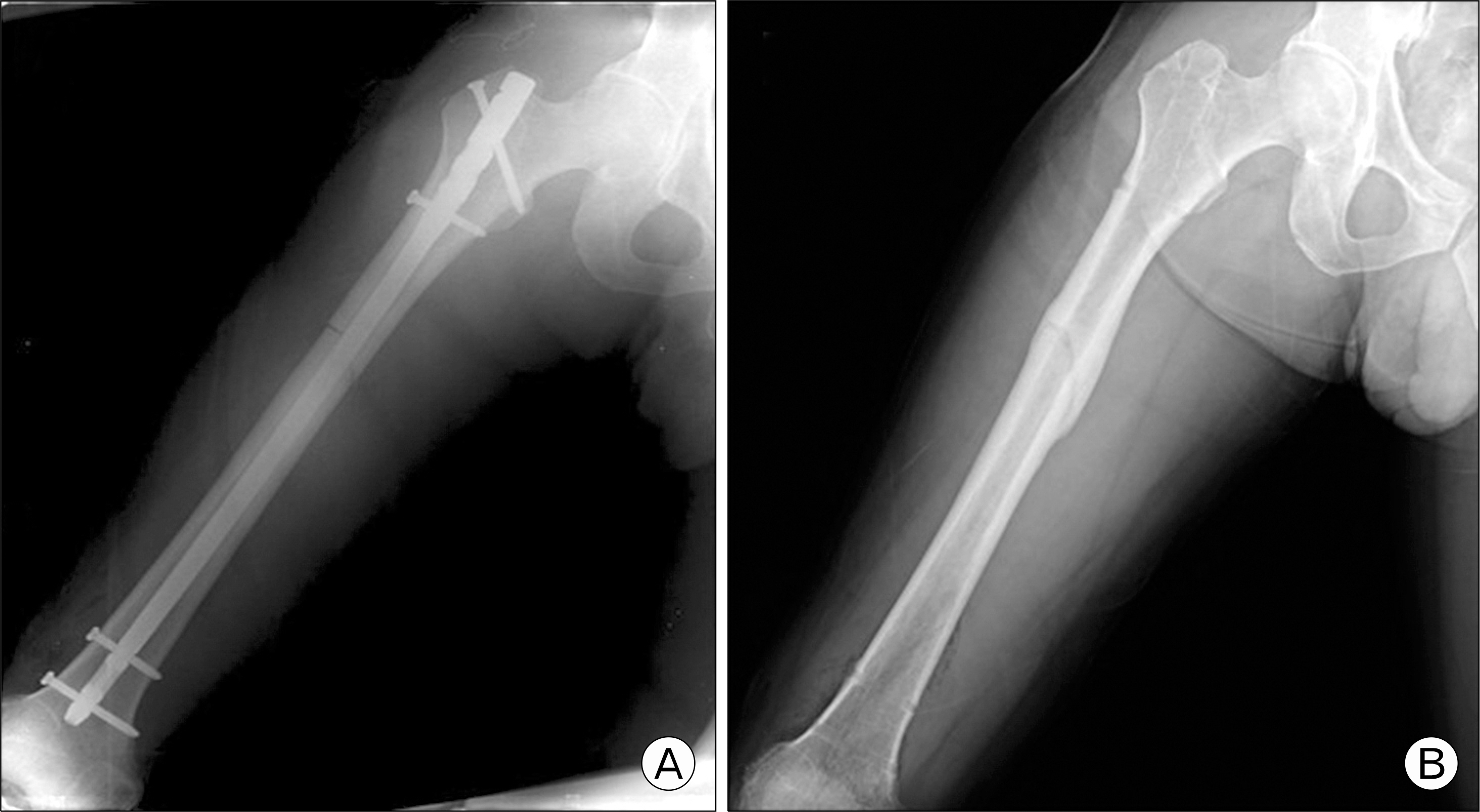Korean J Sports Med.
2017 Jun;35(1):57-60. 10.5763/kjsm.2017.35.1.57.
Femoral Shaft Fracture of a Middle-aged Male Adult during Playing Baseball
- Affiliations
-
- 1Department of Orthopedic Surgery, Sung-Ae Hospital, Seoul, Korea. hwangseokha@naver.com
- KMID: 2382044
- DOI: http://doi.org/10.5763/kjsm.2017.35.1.57
Abstract
- In general, femur fractures in the younger patient population are the result of high energy trauma, such as motorcycle accidents or traffic accidents. A 43-year-old healthy man presented with painful swelling of his right thigh. Plane radiographs showed short oblique fracture of the femur shaft with comminution. He had no medical history such as osteoporosis or any metabolic bone disorder. He was a healthy man with no smoking and no alcohol drinking, enjoying sports activity such as baseball and football. He was injured during defense time of a baseball game by rapid turning motion to catch a ball. We performed intramedullary interlocking nailing for the femur shaft fracture and the fracture was uneventually healed with no complication. To our knowledge, femur shaft fracture which occurred during playing baseball in a healthy middle-aged man has not been reported in our country. So we report this case with a review of the literature.
MeSH Terms
Figure
Reference
-
References
1. Arneson TJ, Melton LJ 3rd, Lewallen DG, O'Fallon WM. Epidemiology of diaphyseal and distal femoral fractures in Rochester, Minnesota, 1965–1984. Clin Orthop Relat Res. 1988; 234:188–94.
Article2. Court-Brown CM, Caesar B. Epidemiology of adult fractures: a review. Injury. 2006; 37:691–7.
Article3. Roh KJ. Bilateral femoral fractures in adults. J Korean Soc Fract. 1989; 2:255–62.
Article4. Hedstrom EM, Svensson O, Bergstrom U, Michno P. Epidemiology of fractures in children and adolescents. Acta Orthop. 2010; 81:148–53.5. Daffner RH, Pavlov H. Stress fractures: current concepts. AJR Am J Roentgenol. 1992; 159:245–52.
Article6. Koh HS, Kang YK, Lee HY, et al. Insufficiency fractures of the femoral shaft associated with osteoporosis. J Korean Fract Soc. 2004; 17:19–24.
Article7. Alho A. Injuries in the femoral axis. Int Orthop. 1980; 3:271–9.
Article8. Miyamoto K, Morita M, Masuda K, Maeda M, Terashima H, Shimizu K. Displaced fracture of the femoral shaft from kicking the ground during soccer: a case report. J Sports Sci Med. 2005; 4:604–7.
- Full Text Links
- Actions
-
Cited
- CITED
-
- Close
- Share
- Similar articles
-
- Thrower's Fracture on the Shaft of the Humerus: 4 Cases Report
- Stress Fracture of the Femoral shaft
- A Case of Throwing Fracture of the Humerus in a Amateur Baseball Pitcher
- Avulsion of the Femoral Attachment of Anterior Cruciate Ligament Associated with Ipsilateral Femoral Shaft Fracture in Skeletally Mature Patient: A Case Report
- Ipsilateral Fractures of Femoral neck and Shaft




